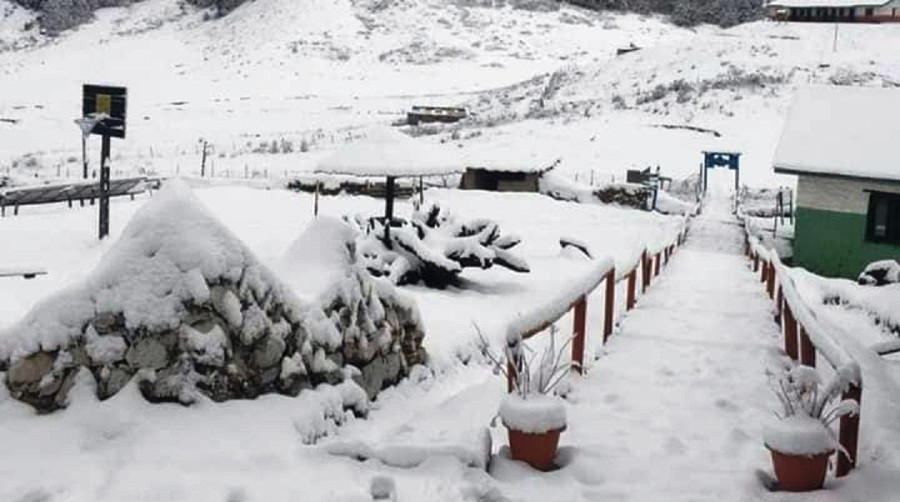National
Wildlife at risk after snowfall in Khaptad
Heavy snowfalls at the Khaptad National Park has affected the park’s wildlife.According to the Park’s officials, the park has witnessed incessant snowfall since January 21.
Basant Pratap Singh
Heavy snowfalls at the Khaptad National Park has affected the park’s wildlife.
According to the Park’s officials, the park has witnessed incessant snowfall since January 21. The routes that were constructed to monitor the animals have been blocked after five-feet of snow blanketed the park.
Ranger Sunil Bohara said a team of Nepal Army has been mobilised to clear the snowfall.
“Army personnel are facing difficulties to clear the routes due to the cold weather,” said Bohara.
Conservationists said that wild animals have been forced to move out of their habitat because of the massive snowfall. The animals strayed to human settlements in search of food.
Dipak Bahadur Khadka of Doti said the hunting for the park animals will rise during snowfall.
“In the past, we also found animals buried in snow,” said Dipak Bahadur Khadka of Doti district.
At present, Khaptad has a temperature of two to three degree Celsius at daytime whereas the temperature drops to minus 15 degree Celsius at night.
Chairman of the park’s Buffer Zone Management Committee Ram Prasad Upadhayay said it is common for wild animals to make their way towards human settlements in search of food during winter.
“There’s a risk for both humans and wild animals,” said Upadhayay.
The park covers 225 square kilometres of area in Doti, Achham, Bajhang and Bajura districts. It has more than 200 types of medicinal herbs, 300 species of birds, and more than 30 species of mammals.
Chief Conservation Officer of the Park Chandra Bahadur Chand said that people living in buffer zone areas should also be responsible towards wildlife conservation. “The park alone cannot work in the conservation of wildlife. It’s a collaborative effort,” said Chand. “We have formed 14 Buffer Zone Committees to conserve the wild animals and medicinal herbs.”




 14.24°C Kathmandu
14.24°C Kathmandu















